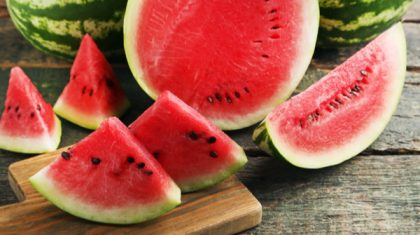With summers coming in, one fruit that should be thoroughly enjoyed is watermelon. Although there’s a myth surrounding fruits that it is not harmful to eat plenty, it’s always important to check the nutritional information first. Moreover, with watermelon containing high sugars, it is important to know how it is going to affect sugar levels. Therefore, diabetes and watermelon are much-debated topics.
Research on the link between diabetes and watermelon
There is no research that proves a direct connection of watermelon with diabetes management. However, there is some evidence suggesting the intake of watermelon can reduce diabetes-related complications. Watermelon contains moderate amounts of lycopene which is considered to be a powerful antioxidant. Although research is required, lycopene may help reduce heart diseases.
Benefits of Watermelon
Also known as Citrullus lanatus, watermelon has amazing benefits ranging from nourishing your eyes to reviving your immune system. The other benefits of watermelon have been discussed below-
- Reduces Body Fat
Citrulline, present in watermelon, has been known to decrease the collection of fat. It is an amino acid that turns into arginine with the help of the kidneys. Citrulline, when retained, can cease the movement of TNAP (tissue-nonspecific antacid phosphatase) which makes our fat cells make less fat, and in this manner counteracts over-accumulation of fat.
- Bone and cardiovascular health
Watermelon is known to contain lycopene that gives the red color to fruits and vegetables. Lycopene is important for our cardiovascular health and also known to improve bone health. It also helps to reduce the activity of osteoblasts and osteoclasts which results in improvement of bone health. As watermelon is also rich in potassium, it helps to retain calcium in the body which also contributes to the health of bones.
- Eye Health
Another wonderful source in watermelon is beta-carotene (the rich red hue in watermelon) which is converted into Vitamin A. Beta-carotene helps in preventing night blindness and age-related macular degeneration. Also, it helps in producing pigments in the retina of the eyes.
- Kidney and Diuretic support
Watermelon helps to ease out the liver process of ammonia which eases the kidney to release excess fluids. Moreover, watermelon is a natural diuretic that increases the flow of urine but does not strain the kidneys.
- Nerve and muscle support
Watermelon is a natural electrolyte in the action of nerves and muscles. Also, potassium present in the watermelon determines the frequency and degree with which our muscles contract and controls the movement of our body.
- Wound Healing & Prevention of cell damage
The role of Vitamin C helps in healing wounds and is proven in many studies because it is important for the formation of new connective tissues. The enzymes required in forming collagen (the fundamental segment of wound healing) can’t work without vitamin C. In fact, if you are experiencing any slow-healing wounds, increase your intake of vitamin C products.
Watermelon and Glycaemic Index
The debate of watermelon and diabetes starts with the Glycaemic Index (GI). People who manage diabetes on the basis of carbohydrate count consider the GI or GL of food items. Foods that have a low GI are less likely to increase sugar levels.
Watermelon has always been in debate because of its high Glycaemic Index. Watermelon typically has a GI of 72 per 100 grams. However, the GL of watermelon is 2 per 100 grams. This is why in spite of low GL, watermelon is always argued to be a diabetes-friendly fruit or not.
Diabetes and watermelon – Is it safe?
In this summertime, it is almost difficult to say no to watermelons. Despite the fact that the fruit contains 92% water, it should be included only after looking at the diet in a whole. Due to its high GI, watermelon should be taken in moderate quantities.
Visit your doctor and discuss the desire to add this fruit in your diet. A dietician/diabetes educator would be able to respond to all the questions and recommend portion size. What you can do is to keep track of your sugar levels and check for any unusual spikes in the sugar readings. Consult your diabetes educator in case of any abnormal fluctuations.





